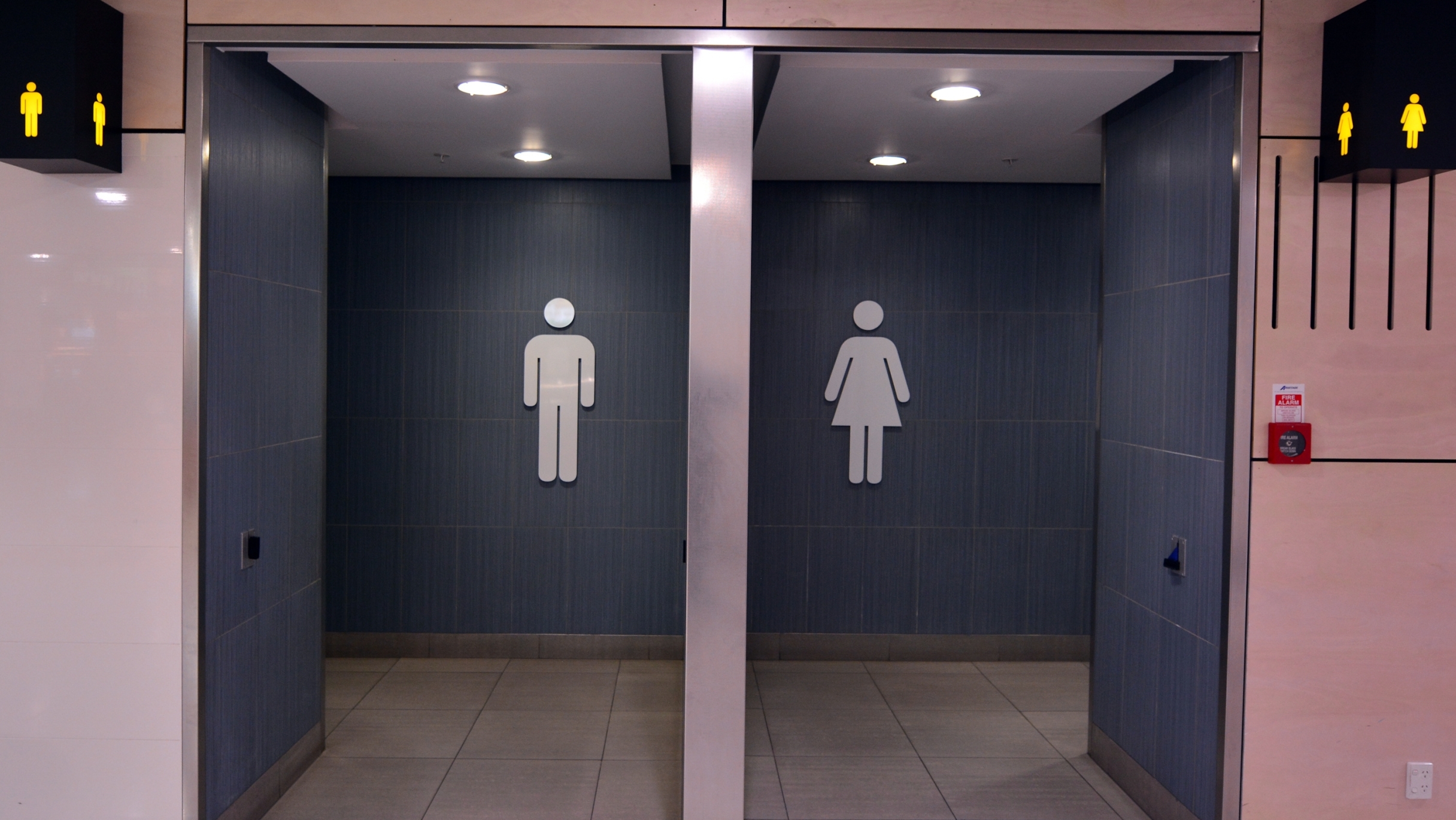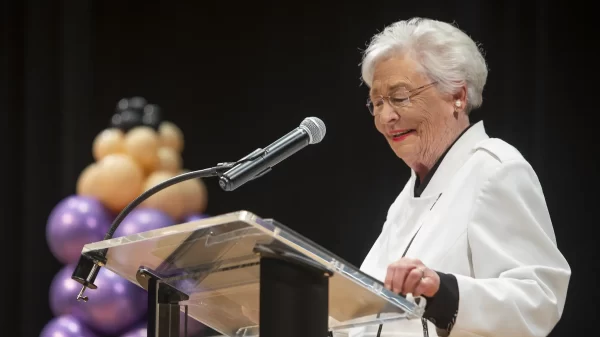Alabama House Republicans once again are trying to ensure students can only use the bathroom of their birth-assigned sex.
Rep. Scott Stadthagen, R-Hartselle, said his bill doesn’t say “anything about transgenders,” but the bulk of the discussion focused on students who identify as a gender contrary to their biological sex.
“We’ve got a problem within our state,” Stadthagen said. “Almost every district is dealing with this issue. I find this to be a safety issue with protection of our students.”
Democrats challenged Stadthagen to back up the safety risk with examples.
“Can you cite cases here in Alabama, and if so, can you tell me where and what happened?” asked Rep. Barbara Drummond, D-Mobile. “If this issue is happening even here in Alabama, you must have examples you can point to.”
Stadthagen said he could only point to what is “in the public” in news articles and then listed off a handful of instances.
“One is too many, we need to have something in place,” Stadthagen said.
The first example he listed was of a case at Sparkman Middle School in Toney in 2010. Stadthagen did not go into detail about the cases, instead stating the year and where the assault took place.
The incident at Sparkman involved an allegation of a teacher’s aide using a female student as “bait” to catch an accused sexual predator.
The boy supposedly propositioned girls in the hallways and asked them to meet in the boys bathroom for sex. According to the victim, the aide schemed to watch surveillance footage to catch the boy going into the bathroom with the victim and stop the incident before anything happened. Instead, the victim said the boy switched bathrooms at the last minute, meaning the aide did not see them on surveillance and the boy went through with the assault.
Stadthagen also mentioned a 2014 incident in Auburn. That appears to be referencing the case of Deaireon Whetstone, then 16, who was charged first-degree rape, a Class A felony, for an incident that occurred in a girls’ restroom. That case resulted in Whetstone being convicted of sexual misconduct instead, a Class A misdemeanor.
He also referenced a 2018 rape at Prattville High School. In that case, 18-year-old LaDarious Starks pulled a 14-year-old girl into the boys restroom and attempted to rape her.
None of the suspects in question appear to have presented themselves as a gender contrary to their biological sex.
The bill simply mandates that K-12 schools designate multiple occupancy bathrooms and changing areas be used based on biological sex.
House Minority Leader Anthony Daniels, D-Huntsville, questioned whether the bill would have its intended effect as it does not carve out an exception for transgender individuals that have completed conversion, including a sex change.
“What if their conversion happens?” Daniles asked. “That’s not actually stopping what you’re trying to stop though.”
Stadthagen countered that, as of last year, no K-12 student in Alabama had ever had a full sex change.
Stadthagen said his “number one objective is to not allow males to use female bathrooms.”
“I, for one, as a father do not want a male who was born male in my daughter’s bathroom.”
Regardless of examples, Stadthagen said he had been contacted by educators in his districts and in others to say this is a problem that is happening.
“The main purpose is in our school systems right now, a student that was born male showed up on the first day of school with parents and attorneys and told them ‘this student is female now,’” Stadthagen said. “The administration told them the student could use the faculty bathroom. The attorney says ‘That’s discrimination, no. They’re going to use the female bathroom.”
The bill was given favorable report and now moves to the full House for consideration.
“Alabama lawmakers’ efforts to deny transgender youth the simple act of using the bathroom that matches their gender identity helps absolutely no one,” said Sam Ames, director of advocacy and government affairs at The Trevor Project. “But it does cause real harm. Policies like this one impact the mental and physical health of trans and nonbinary youth, and make matters worse for this group that already experiences disproportionate rates of suicide risk and other mental health challenges. A 2020 study by The Trevor Project’s researchers found transgender and nonbinary youth who experienced bathroom discrimination had more than 1.5 times the odds of attempting suicide in the past year compared to those who did not. This bill is not only unnecessary, it’s dangerous.”
According to The Trevor Project’s 2021 National Survey on LGBTQ Youth Mental Health, 52 percent of transgender and nonbinary youth seriously considered suicide in the past year, and 1 in 5 attempted suicide. Further, a recent poll, conducted by Morning Consult on behalf of The Trevor Project, found that 85 percent of transgender and nonbinary youth say recent debates about state laws restricting the rights of transgender people have negatively impacted their mental health.






















































